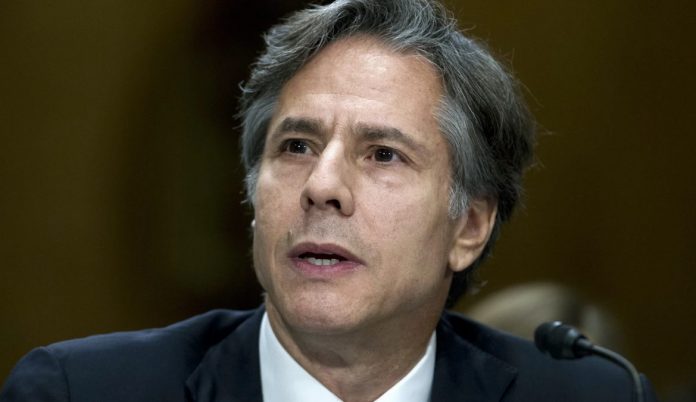Violence continues in and around Las Anod [Laascaanood], the capital of Somaliland’s Sool region. While clan tensions in the region are nothing new, the current outbreak of violence was not spontaneous. Evidence suggests that both Somali irredentists and China , upset with Somaliland’s turn toward Taiwan , conspired to set local tension alight.
The root of the problem is Somalia’s claim to all territories populated by ethnic Somalis. Take the Somalia’s flag , for example. The points of its star each represents a different Somali territory: Djibouti, Somaliland, the Somali region of Ethiopia, Kenya’s North Eastern Province, and Somalia itself.
The State Department recognized Somaliland’s independence in 1960, but that ended after the country entered a union to form Somalia. The union was an unhappy one, culminating in genocide against the Isaaq clan in Somaliland. Somaliland reasserted its independence in 1991. While unrecognized, it has now operated as an independent country for longer than it was part of Somalia.
Somali clan dynamics are complicated but important. Somaliland is predominantly Isaaq, but not exclusively so. Around Las Anod, the Dhulbahante, a branch of the Harti which themselves are part of the Darod, predominate. While Dhulbahante in Las Anod, “SSC” militiamen, and Dhulabahante diaspora in the United States and Europe demand their own state carved out of Sool , Sanaag , and Cayn, they often seek for their own benefit to oversimplify the human terrain to foreigners. While the Dhulbahante can say they are dominant in eastern Sool, they are only a small minority in Sanaag. Cayn is actually Aynabo which is part the Togdheer region . Here, the Dhulbahante are a majority only in the smaller Buhotle district .
Because the State Department, unlike many European and African states, has not opened an office in Somaliland, U.S. officials are essentially flying blind. The US.. Embassy in Mogadishu hears only one side of the argument. Its interlocutors often seek to pull a fast one over American diplomats.
Secretary of State Antony Blinken should be careful, lest he repeat his past mistakes. Remember: On May 1, 2006, the New York Times published a proposal by then-Sen. Joe Biden and Council on Foreign Relations President Leslie Gelb to divide Iraq along ethnic and sectarian lines. Blinken, then Biden’s chief foreign policy staffer, reportedly wrote it for his boss. The essay was a monument to both arrogance and ignorance. It was arrogant because Biden and Gelb (and Blinken), confused power points given inside the embassy or bases with reality, thought that they found a magic formula that bypassed both Iraqis and foreigners with substantive experience in the country. It was ignorant because it supplanted the complexity of ground reality with a cartoonish notion of sharp ethnic, sectarian, and tribal boundaries.
I had driven the roads and visited the villages around the regions that Biden, Gelb, and Blinken wanted to carve up and they were incredibly complex: Christian, both Sunni and Shi’ite Muslims, and Yezidi; Arab, Kurd, and Turkmen. Sometimes together, sometimes separated in twin villages. Larger towns were diverse, even down into specific neighborhoods. To divide Iraq would be to unleash Balkans-style ethnic and sectarian cleansing. Rather than end terrorism, a Sunni state would (at that time) institutionalize Al Qaeda, while a Shi’ite state would simply be more digestible for Iran.
While some Kurdish nationalists had sweet-talked Biden, Blinken, and Gelb to trick Washington into doing their dirty work, Iraqis across their ethnic and sectarian spectrum (including many Kurds) recognized this and rejected the Biden plan.
I have also driven around Sool. Blinken should not make the same mistake twice. Some Somali irredentists and Chinese interests are willing to use Dhulbahante separatism for their own reasons. Somali President Hassan Sheikh Mohamud, meanwhile is happy to rally Somalis around the flag and to distract from Somalia’s economic woes.
If diplomacy truly is back, as Biden and Blinken have promised, there is no substitute for on-the-ground knowledge. It is time to open a consular office in Somaliland and perhaps forward station a diplomat on a temporary basis to Burao, if not further east. To flirt with a Dhulbahante state, however, would be a mistake whose price would be paid in both years and tens of thousands of lives.




























